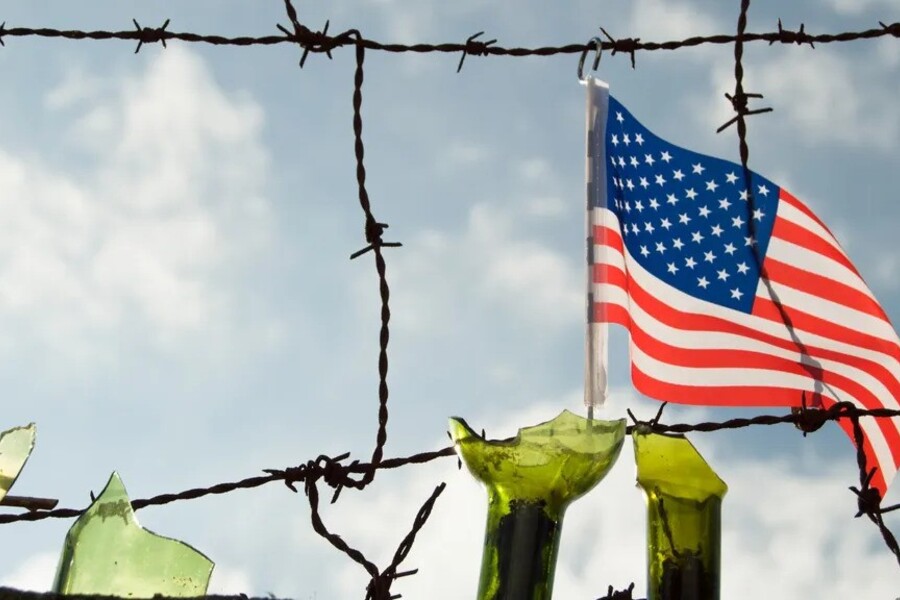In a poignant moment that should have underscored the gravity of America’s ongoing debate over immigration policy, President Biden’s mispronunciation of a young woman’s name during the State of the Union address has ignited a firestorm of criticism. The incident, involving the tragic death of Laken Riley, a 22-year-old nursing student from Georgia, has become a flashpoint in the conversation on immigration reform and the responsibilities of national leadership.
During his address, President Biden intended to honor the memory of Laken Riley, who an illegal immigrant allegedly murdered. However, the moment was marred by a critical error: Biden mistakenly referred her as “Lincoln Riley.” This slip of the tongue, made in front of millions of viewers, quickly became the focus of national attention, overshadowing the broader issues at hand.
The reaction was swift and fierce, particularly from Laken Riley’s mother, Allyson Phillips. Phillips took to social media to express her dismay, calling the President “pathetic” for his failure to correctly say her daughter’s name.
“If you are going to say her name (even when forced to do so) at least say the right name!” she wrote, highlighting her frustration with the President’s handling of her daughter’s memory.
This sentiment was echoed across various platforms, with critics and supporters alike weighing in on the implications of the mistake. Former President Trump, seizing on the moment, labeled the incident a reflection of what he termed “a Biden invasion,” linking the tragedy directly to the current administration’s immigration policies.
The incident occurred against the backdrop of a heated debate on immigration reform in the United States. Just hours before the State of the Union address, the House had passed a new immigration bill named in Riley’s honor, signaling the high stakes involved in the ongoing policy discussions.
Critics of the administration, including notable figures from the Republican Party, argued that the President’s error was indicative of a broader failure to address the real issues plaguing the country’s immigration system.
The dialogue around the Laken Riley Act and other proposed reforms has underscored the deep divisions between parties on how best to secure the nation’s borders while ensuring justice and safety for all Americans.
The controversy surrounding the State of the Union address has sparked a national conversation about respect, memory, and how political leaders engage with individual tragedies.
The pain of the Riley family thrust into the spotlight, has become a symbol of the broader struggles many Americans face in seeking accountability and reform.
As discussions continue, the focus has shifted to the need for a bipartisan approach to immigration legislation. President Biden, in his address, urged Republicans to reconsider their stance on a comprehensive immigration bill rejected in February, emphasizing the potential to “save lives and bring order to the border.”
At the heart of this controversy lies the tragic loss of Laken Riley, a young woman described by those who knew her as beautiful, compassionate, and dedicated to her future career in nursing. Her death, and the circumstances surrounding it, serve as a poignant reminder of the human cost of policy failures and political rhetoric.
The suspect in Riley’s murder, Jose Antonio Ibarra, a migrant from Venezuela, has become a focal point in the debate over immigration enforcement and the Biden administration’s policies toward migrants. The case has highlighted the complexities of the U.S. immigration system and the challenges in balancing security with humanitarian considerations.
The mispronunciation of Laken Riley’s name by President Biden, while a significant oversight, points to broader issues within the American political and social landscape. As the nation grapples with the implications of this incident, the necessity for thoughtful, compassionate, and effective leadership has never been clearer. The tragedy of Laken Riley’s death, and the controversy that followed, should catalyze meaningful reform and a renewed commitment to justice for all Americans, regardless of their stance on immigration.
In remembering Laken Riley, it is crucial to move beyond the political firestorm and focus on the values that unite us: empathy, respect, and a shared desire for a safer, more just nation. As the conversation unfolds, let us not forget the individual lives touched by policy decisions and political debates. We strive to honor their memories with actions that reflect the best of American ideals.



















![Fan Expo Chicago [Convention], Donald E. Stephens Convention Center, 16 Aug What You Need to Know](https://www.thefreemanonline.org/wp-content/uploads/2024/09/Fan-Expo-Chicago-Convention-Donald-E.-Stephens-Convention-Center-16-Aug-What-You-Need-to-Know-74x55.jpg)
![Error [err_http_headers_sent] Cannot Set Headers After They Are Sent to the Client How to Fix](https://www.thefreemanonline.org/wp-content/uploads/2024/09/Error-err_http_headers_sent-Cannot-Set-Headers-After-They-Are-Sent-to-the-Client-How-to-Fix--74x55.jpg)
